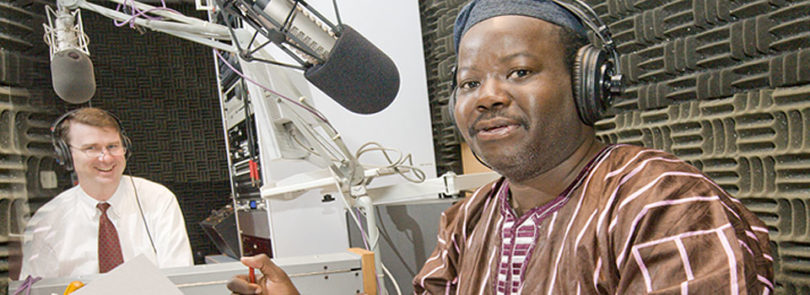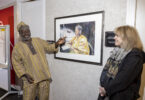When Akinloye Ojo came to University of Georgia radio station WUGA in 1997 with a proposal for a show about African music and culture, station officials were happy to give the young graduate student air time and figured he might last a couple of years.
Ojo, with no radio experience but lots of enthusiasm, assumed he would do the show until he ran out of ideas or a better opportunity came along.
So when African Perspectives marked its 10th year on the air in November, it was a notable anniversary for both the station and the host.
“It’s something that’s unique. I don’t think there’s anything else around like it,” says WUGA program manager Robb Holmes of the show, now the second-longest-running locally produced show the station has ever broadcast.
With a lively mix of African music and commentary and guest interviews, African Perspectives has built a loyal audience on WUGA, the local National Public Radio affiliate. Though the station does not track listenership, phone calls, e-mails and other response indicate a large number of people hear the show, Holmes said.
Ojo, a native of Nigeria, was a doctoral student and cultural secretary of the African Students Union when he came up with the idea for the show. Though his father had worked in radio and television in Nigeria for more than 30 years, Ojo had almost no radio experience when he approached WUGA.
Holmes said the station agreed to try the show because there was a lot of interest in Africa and a market for African music. Originally broadcast monthly, the show grew in popularity and eventually became weekly. Currently it is heard on Mondays at 4:30 p.m.
Ojo had a large collection of African music and originally planned the show to be almost exclusively musical. While music is still a major component, he expanded the format to include information about African history and culture, and commentary on news and events in Africa. He also opened the show to guests who discuss developments in government, politics, education, culture and other facets of African life.
“We try not to get into controversial issues,” said Ojo, who writes his scripts but does not prepare questions for guests, striving instead for spontaneity and informality. “We try to focus more on education about Africa and celebrating the good things about Africa.”
Three of his former guests have returned to Africa and served as government ministers in Nigeria, Ghana and Rwanda.
African customs, religions, literature and popular culture are frequent topics of discussion. Ojo, who received his Ph.D. in 2001 and is an assistant professor in the comparative literature department, specializes in African studies and the Yoruba language, which is spoken primarily in Nigeria, Benin and Togo as well as Brazil and parts of the Caribbean.
He likes to educate listeners about African languages, and opens and closes shows with welcomes and farewells in Yoruba, Swahili, Zulu, Hausa, Amharic or Igbo as well as English.







